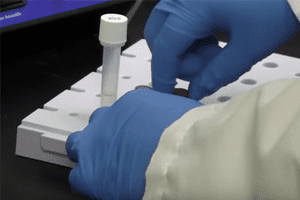
Reporting System For Infections Known As C. Diff Is Flawed. A new state reporting system for infections known as C. diff is flawed, says a hospital association lawyer, calling into question the accuracy of hospital cases reported last week by the Ohio Department of Health. The Health Department since January has collected and posted on its […]

Reporting System For Infections Known As C. Diff Is Flawed. A new state reporting system for infections known as C. diff is flawed, says a hospital association lawyer, calling into question the accuracy of hospital cases reported last week by the Ohio Department of Health.
The Health Department since January has collected and posted on its Web site infections from Clostridium difficile, an intestinal bug acquired at hospitals and nursing homes. The state last week issued an interim report detailing rates at individual hospitals. The report showed about 14 percent of hospitals had not followed reporting requirements.
Rick Sites, legal counsel for the Ohio Hospital Association, said some data submitted by hospitals is missing. Sites said he didn’t know how much information was lost, but he said the number appeared to be significant.
“We want to work closely with on this issue and solve it,” Sites said. “I think the reporting process needs to be studied.”
Department spokesman Jay Carey said Friday that there is no problem with the computerized reporting system. Carey said that in some cases local health departments, which take the information from hospitals and enter it in the state system, didn’t save data or enter it correctly.
“I think it was more an operator deal than a software glitch,” said Carey, adding that another report will be issued this month.
“Some of the data wasn’t in the right place at the right time to be in the July report. It will be in the August report,” Carey said.
A virulent strain of C. diff has become a lethal public health threat responsible for outbreaks in Ohio and other states. The infections strike mostly elderly patients and those given antibiotics, which destroy protective natural bacteria in the intestines.
Hospitals say they have stepped up prevention efforts. But taming the bug has been a challenge for infectious-disease experts.
Last week, the Health Department reported about 3,000 C. diff infections at Ohio hospitals from January through June. The agency for the first time established rates, based on patient volume, to give hospitals a benchmark for gauging infections over time.
Some say public reporting motivates hospitals to improve infection control, but six months of data is not enough to single out facilities.
Sites, of the hospital association, said he had asked the Health Department to delay the report because of reporting problems.
Kevin Miller, president and chief executive of Ashtabula County Medical Center, said in an e-mail that he was told in July his hospital had not reported required data. But the hospital reported regularly and the city health department confirmed that it gave the data to the state, he said.
“It, therefore, makes me question the accuracy of the entire database,” Miller wrote Friday.
Likewise, Lake Hospital System reported cases that the county health department sent to the state, said hospital spokeswoman Julieann Strogin. But the state report shows data missing for both of the system’s hospitals.
“Why the state hasn’t received it, I have no idea,” Strogin said.
The personal injury attorneys at Parker Waichman LLP offer free, no-obligation case evaluations. For more information, fill out our online contact form or call 1-800-YOURLAWYER (1-800-968-7529).


